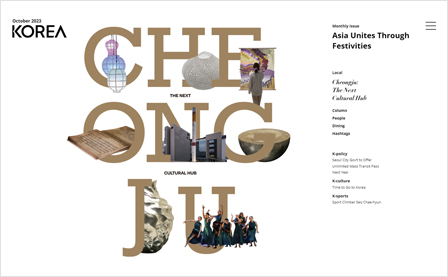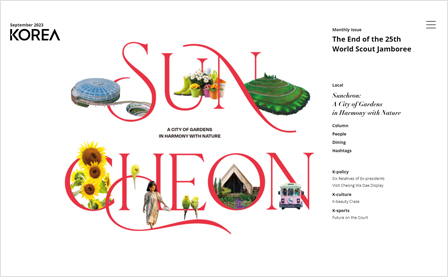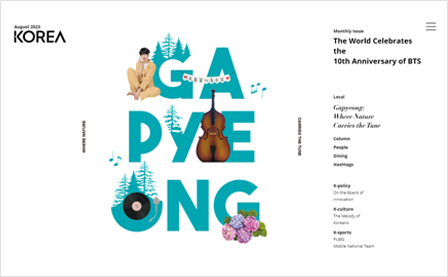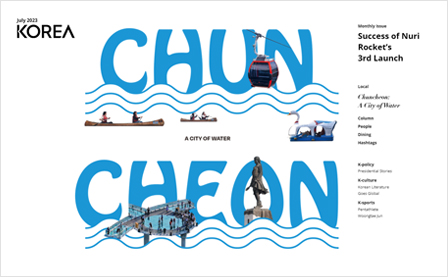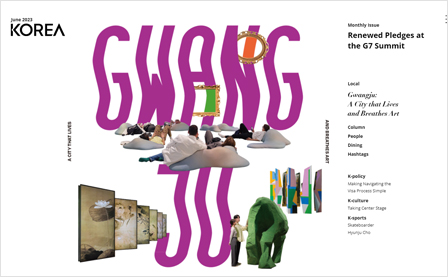November 2023

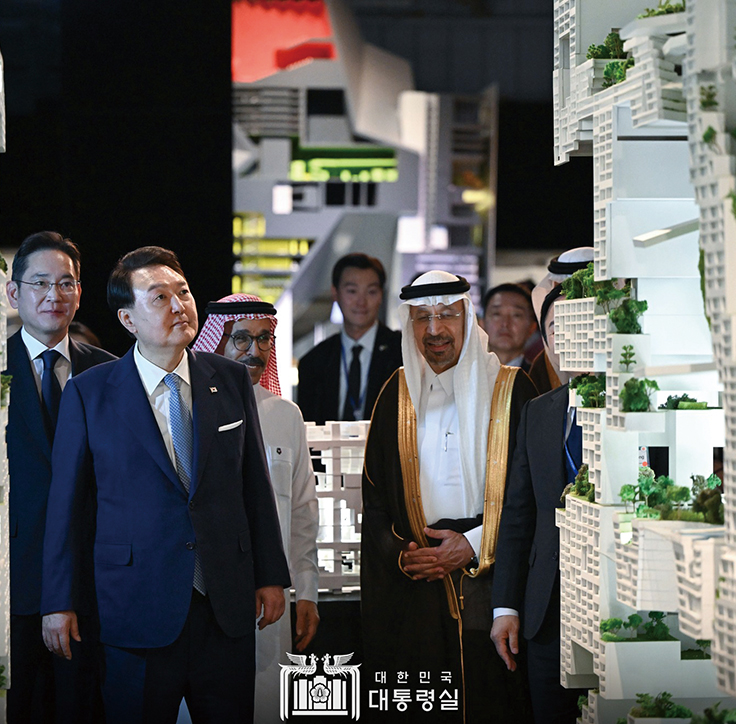 Yoon explores an exhibition featuring Saudi Arabia’s Neom City ©Office of the President
Yoon explores an exhibition featuring Saudi Arabia’s Neom City ©Office of the PresidentKorea Seeks
2nd Middle
East Boom
Korean President Yoon Suk Yeol’s six-day state visits to two major trading partners in the Middle East―Saudi Arabia and Qatar―raised hopes for another Middle East boom for the Korean economy.
Five decades ago in 1973, Korean construction firms entered the Middle Eastern market for the first time when they won contracts to build highways in Saudi Arabia. This brought about the first “Middle East boom” that laid the foundation for Korea’s rapid rise to economic prosperity.
Yoon’s recent state visits to Saudi Arabia and Qatar raised hopes of the second Middle East boom as Korea clinched numerous business contracts and memorandums of understanding (MOU) with a total value of USD 20.2 billion.
Yoon’s trips came as both Arab countries have been pushing to break away from an oil-dependent economy through ambitious mega projects to develop smart cities and alternative energy sources, as well as build knowledge-based, high value-added industries. The move presented a good opportunity for Korean companies armed with cutting-edge technologies and a successful experience of industrial development to expand their cooperation with the two Middle Eastern powers.
Beyond 50 Years of Partnership
“The stable oil supply of Saudi Arabia, the biggest oil-producing nation, became a solid cornerstone for Korea’s growth into a top 10 economy,” Yoon said in a speech to mark the 50th anniversary of Korea’s entry into Saudi Arabia. “If Korea joins hands with Saudi Arabia, with its abundant capital and growth potential, we can create synergy stronger than any other nation.”
Yoon’s series of summits and events in Riyadh focused on expanding the playing field for Korean businesses in the Middle East. Recognizing the potential for further expansion, both governments agreed to explore mutual investments in areas such as the hydrogen economy, crude oil, smart cities, future mobility and many more.
Among over 50 deals and MOUs signed by both sides, Korean companies secured a USD 2.4 billion deal with Saudi Arabia’s state-run oil giant, Saudi Aramco, to construct a gas processing plant in Jafurah, Saudi’s largest gas field with reserves estimated at 200 trillion cubic feet of raw gas. Another mega deal was signed between Korea’s Hyundai Motors and Saudi Arabia’s Public Investment Fund to jointly invest around USD 400 million in the construction of a car assembly plant in King Abdullah Economic City in Makkah Province. The plant will be the first Korean automobile factory in the Middle East, producing an annual 50,000 electric and gas-powered cars starting in 2026.
Elevated Ties
Following his schedule in Saudi Arabia, Yoon moved to Qatar for a two-day state visit to seek more business opportunities in the Arab country. For Korea, Qatar is a major trading partner, ranking as its second-largest source of Liquefied natural gas (LNG) imports following Australia.
This visit has significantly strengthened both countries’ collaborative efforts in the energy and construction sectors, which have been pivotal in fostering Korea-Qatar relations. Korea’s HD Hyundai Heavy Industries secured a contract worth USD 3.9 billion to build 17 LNG carriers, the largest ever contract for Korea’s shipbuilding industry.
Both governments also aimed to further expand bilateral cooperation beyond the traditional areas of energy and construction by signing 11 MOUs in a range of sectors, including smart farming, solar energy, autonomous cars, cultural content, health care and finance.
“Even as uncertainty has become the new normal, because of geopolitical tensions and supply chain disruptions, the trust of Middle Eastern countries in Korea continues,” Yoon said. “Together with the Middle East and the rest of the international community, Korea will create a prosperous future by sharply increasing official assistance, as well as fostering technological and people-to-people exchanges.”
 News Ticker
News Ticker View of all
View of all